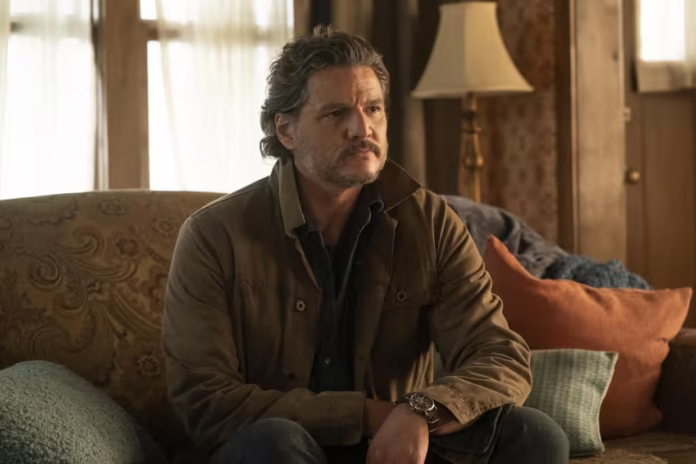Season one of The Last of Us set a high bar. It was not only a rare successful adaptation of a video game but also one of the best dramas of 2023. Co-created by Chernobyl writer Craig Mazin, it delivered emotional devastation, pulse-pounding action, and tender human moments. Now, in its second season, the series changes pace — becoming narrower in focus and quieter in tone, yet still just as thoughtful and emotionally raw.
A New Phase in a Shattered World
We return five years after Joel’s (Pedro Pascal) brutal decision to rescue Ellie (Bella Ramsey) from a surgery that would have sacrificed her for a potential cure. The pair now live in Jackson, Wyoming — a fortified commune where life mimics the past with frontier charm and safety from the infected.
READ MORE: Tim Minchin: ‘I Suffer from an Inability to Not Go There’
The threat isn’t entirely gone, but this season’s primary tension isn’t from fungus-fuelled monsters. Instead, it’s emotional: Joel is navigating the distance growing between him and Ellie, who’s now 19, angry, defiant, and hurt. Their relationship is fraying under the weight of unspoken truths and Joel’s increasingly transparent guilt.
Bella Ramsey Comes Into Her Own
Season two belongs to Bella Ramsey. Her performance is magnetic — balancing Ellie’s biting sarcasm with moments of raw vulnerability. We see a teenager shaped not just by the apocalypse, but by betrayal, loss, and a deep yearning for autonomy. She’s a firecracker, difficult to like at times, but always compelling.
Ramsey’s chemistry with newcomer Isabela Merced, who plays Ellie’s spirited best friend Dina, offers light in the show’s greyer moments. Their friendship — and potential for something more — is tenderly drawn and refreshingly intimate, especially in a world where connection is so rare.
Joel’s Quiet Crisis
Pedro Pascal’s Joel is still a strong emotional anchor. This time, though, his story is more muted. He’s a man haunted by past actions, trying (and failing) to maintain the bond he fought so hard to preserve. A standout moment sees Joel in therapy with Gail (played with comic sharpness by Catherine O’Hara), who calmly confronts him over killing her husband. It’s darkly absurd and beautifully handled — a reminder that The Last of Us excels at finding humanity amid horror.
A More Focused Narrative
Season two lacks the digressive, standalone episodes that enriched the first season — such as the Bill and Frank love story. Instead, it’s more linear, placing Ellie at the centre and charting her emotional growth as she stumbles into adulthood. This shift sacrifices some of the richness of the world in favour of character development, but it’s a worthwhile tradeoff.
There are still thrills: hints of underground infection, simmering revenge plots, and the introduction of Kaitlyn Dever as the daughter of one of Joel’s victims, setting up a slow-burning conflict.
But the show’s real achievement is its depiction of what adolescence looks like when the world has ended — when rebellion, heartbreak, and the search for identity play out against a backdrop of ruin.
Conclusion: Still One of TV’s Best
Season two of The Last of Us may be smaller in scale, but it’s emotionally expansive. It dares to slow down, to let its characters breathe and break. Bella Ramsey is extraordinary — a portrayal of youth, trauma, and resistance that is as searing as it is sensitive.
For fans hoping for more infected and high-stakes peril, that’s still coming. But the heart of this show remains its characters. And in that, The Last of Us remains one of the best things on television.
